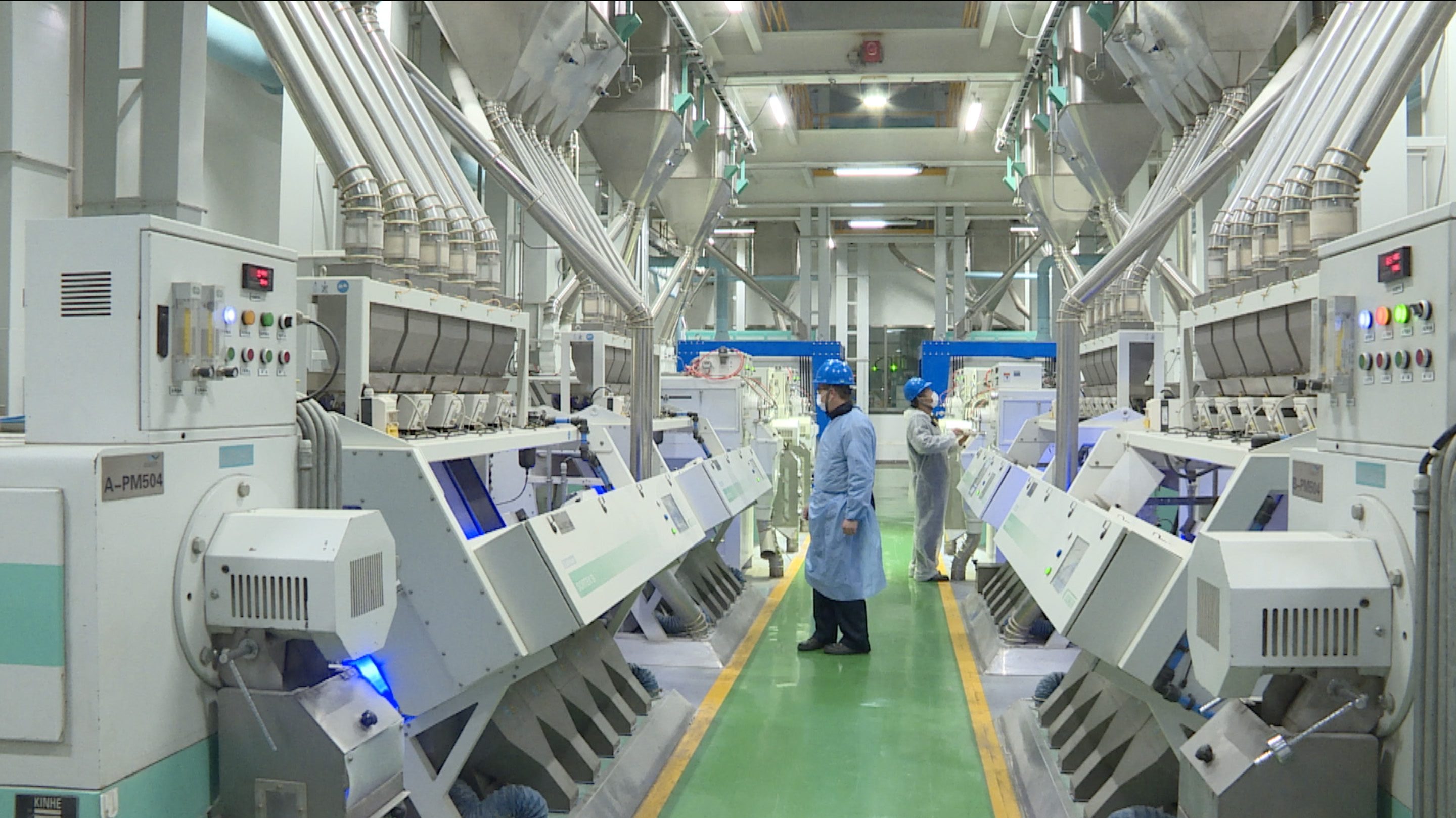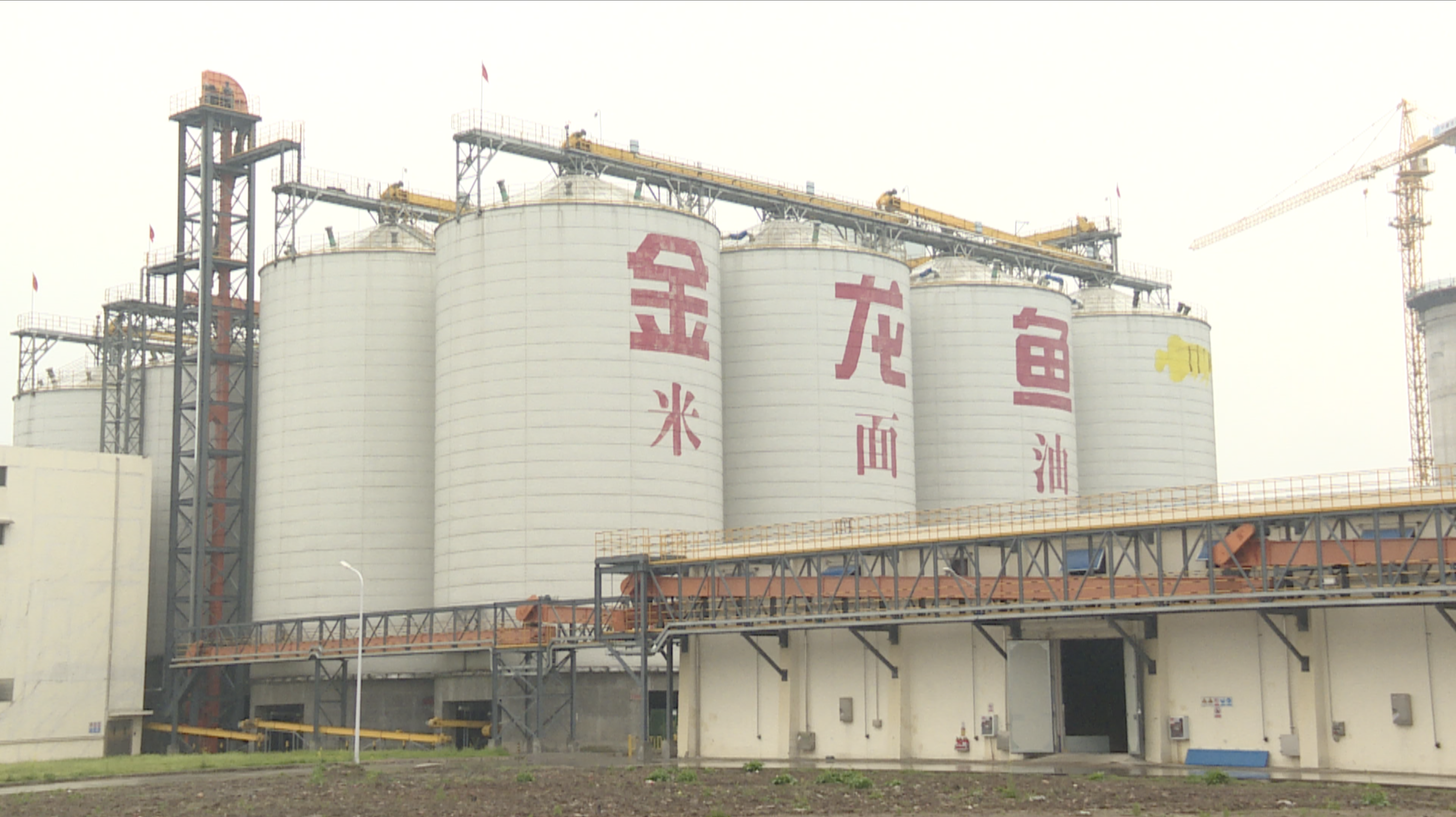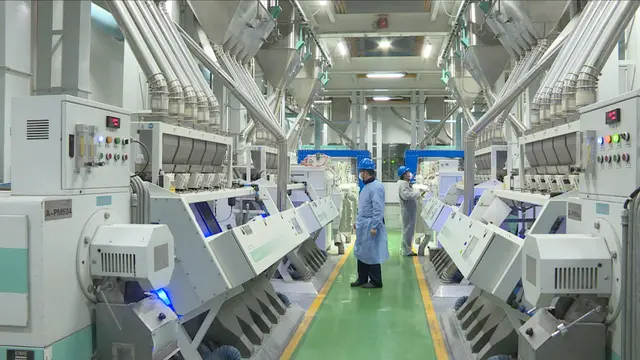To many Chinese, "cooking a meal without rice" is like "making bricks without straw."
Rice is by far China's most popular grain, served with nearly every meal. The grain has remained etched on China's food pyramid for centuries, even through amid this outbreak.
Daily consumption of rice for 10 million people in Wuhan under lockdown is around 3,500 tonnes, according to the Wuhan Municipal Development and Reform Commission. That's about the weight of 15 Statues of Liberty. Making sure that no one goes hungry has become local rice factories' daily quest.
02:29

"The more we contribute, the happier we feel. We are very proud to be of assistance in maintaining supplies in the fight against the outbreak at this very time," said Chen Ming, manager of Yihai Kerry Oil Grain Industries' Wuhan branch.
The company's lines can produce 450 tonnes of rice every day, plus 100,000 tonnes of raw paddies in stock – enough to feed the entire city for 20 days. Tonnes of additional supplies have also been pouring into the city through its green passages from nearby regions.
Chen says the company's rice workshop currently has 70 workers, about one third of its regular staff. To reduce possible infection among workers, the factory had to cut back on manpower. Although short-handed, the workers have been multi-tasking to support one tenth of Wuhan's daily rice demands since February 4.

Tonnes of unprocessed rice are transferred from garners to production lines at Yihai Kerry Oil & Grain Industries (Wuhan). /CGTN
Wuhan's Development and Reform Commission Friday alone saw nearly 1,000 tons of rice produced along with 230 tonnes of flour. The city has stocked enough grain and oil for 30 days in case of worst scenarios.
"The grain and oil market is ample with stable prices. And the inventory is abundant. So far, we have put 80 thousand tons of rice and flour on the market since the epidemic," said Fang Zhonghua, deputy director of the commission.
"We have full confidence to meet market demands, especially the city's need for grain and oil," Fang added. "There are also specific plans for other factories to get back on their feet so residents can be assured."
Many workers, even non-residents, came back when the city needed them the most, knowing what they signed up for could be dangerous. While serving with pride and a sense of duty, many also long to be home with family.

A worker examines rice quality. /CGTN
Yu Shengqiang is the manger of Yihai Kerry's rice workshop in Wuhan. It's his first job since graduating from college 14 years ago and where Yu met his wife. When the couple came back to post, they had to leave their two daughters at home to his brother and sister-in-law in Huanggang City.
"At first we were all afraid, of course, and I was worried about my family," said Yu.
There was a long moment of silence.
"I miss my kids," said the manager, fighting back tears in his eyes. "The older girl is 10 years old. The younger is two."
Yu's glasses fogged up. The father of two told us his 10-year-old daughter has been learning from online classes.
"My brother and sister-in-law have been taking care of them. I feel sorry for them. It's been so long," he added.
Yu says this company is like another big family to him. He feels at ease with colleagues supporting each other amid Wuhan's hardest times. The company's management level has also ensured their health and safety at work.
Drying his tears, Yu then pulled himself together and headed back to the production lines – life lines for 10 million people still under lockdown.
 简体中文
简体中文



